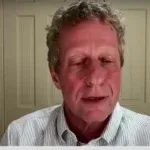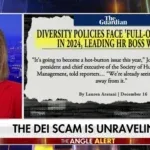(The Defender) A House subcommittee on Tuesday subpoenaed a former senior adviser to Dr. Anthony Fauci for conversations about COVID-19 origins exchanged over his private email account in violation of federal record-keeping laws.
The U.S. House Select Subcommittee on the Coronavirus Pandemic demanded Dr. David Morens turn to produce “all documents and communications” regarding the Wuhan lab and EcoHealth Alliance or the origins of COVID-19, between Nov. 1, 2019 and the present between Morens and 36 others, including EcoHealth President Peter Daszak, Fauci and former National Institutes of Health (NIH) Director Francis Collins, former Centers for Disease Control and Prevention Director Robert Redfield, World Health Organization (WHO) chief scientist Jeremy Farrar, Kristian Andersen, Ph.D. and Dr. W. Ian Lipkin (co-authors of the “Proximal Origin” paper), Wuhan lab senior scientist Shi Zhengli and Peter Hotez, M.D., Ph.D.
Morens has until April 30 to produce the documents, according to the subpoena.
The subpoena followed email confirmation of whistleblower allegations that Morens purposefully evaded federal transparency laws like the Freedom of Information Act (FOIA) in concealing email conversations about the pandemic’s origins.
Subcommittee Chairman Brad Wenstrup (R-Ohio), in a statement on the subpoena and potential federal records violation, said:
“Dr. David Morens purposefully evaded FOIA laws to give his ‘best-friend’ EcoHealth Alliance President Dr. Peter Daszak non-public, internal information that had the potential to undermine the operations of the United States government. This is not only highly concerning, but it is also likely illegal.
“Dr. Morens must be held accountable for any abuse of power and his blatant disregard for the law.”
The chairman also noted that this “pattern of abusing federal power appears to stretch beyond Dr. Morens, Dr. Daszak, or NIH,” and called the subpoena “an important effort to ensure that federal health officials never again feel empowered to duck accountability to the American people and willfully undermine our elected government.”
‘I will delete anything I don’t want to see in the New York Times’
Morens, who will testify before the subcommittee at a public hearing later this year, has been at the center of controversy since June 2023 for using his private email to communicate with Daszak.
In those emails, Morens wrote, “I always try to communicate over gmail because my NIH email is FOIA’d constantly” and “I will delete anything I don’t want to see in the New York Times.”
EcoHealth Alliance, a nonprofit organization, has been accused of using U.S. taxpayer dollars to fund gain-of-function research at the Wuhan Institute of Virology in China.
New evidence provided by the whistleblower alleges Morens engaged in further attempts to subvert transparency laws by sending emails from his personal Gmail account not only to Daszak but to Dr. Gerald Keusch, associate director of the National Emerging Infectious Disease Laboratories at Boston University, discussing matters related to COVID-19 origins, according to an April 11 subcommittee press release.
In one of the emails sent to Daszak and Keusch on July 12, 2020, Morens inquired about the International Society for Infectious Diseases (ISID), which authored an email with a subject line that read, “COVID-19 update (312): China, SARS-CoV2 origin, animal reservoir, WHO mission.”
ISID’s email raised concerns about a possible cover-up of the virus’s origins, mentioning Daszak, EcoHealth Alliance’s suspended grant and Wuhan lab researcher Shi, asking, “Is it possible that somebody at WIV [Wuhan Institute of Virology] became infected with the virus and then passed it on to others outside the lab?”
Daszak represented the U.S. in the WHO’s investigation into the origins of the virus in China.
In the letter to Morens accompanying the subpoena, Wenstrup expressed concern about the adequacy of Morens’ efforts to comply with the Select Subcommittee’s document requests. The letter states that it appears Morens personally conducted the search of his own email inbox and failed to produce documents that the subcommittee knows are in his custody, including some explicitly mentioned in the June 29, 2023, letter.
The letter also reveals that subcommittee staff and Morens’ counsel had attempted to reach an accommodation regarding a more robust search and production of documents, but after Morens’ transcribed interview, he “abruptly ceased attempting to reach an agreement with the Select Subcommittee.”
Wenstrup also sent a letter to Keusch on April 11 requesting he produce any documents and communication related to correspondence with Morens, Daszak, the Wuhan lab and other individuals and entities with knowledge of and access to COVID-19 origins material.






